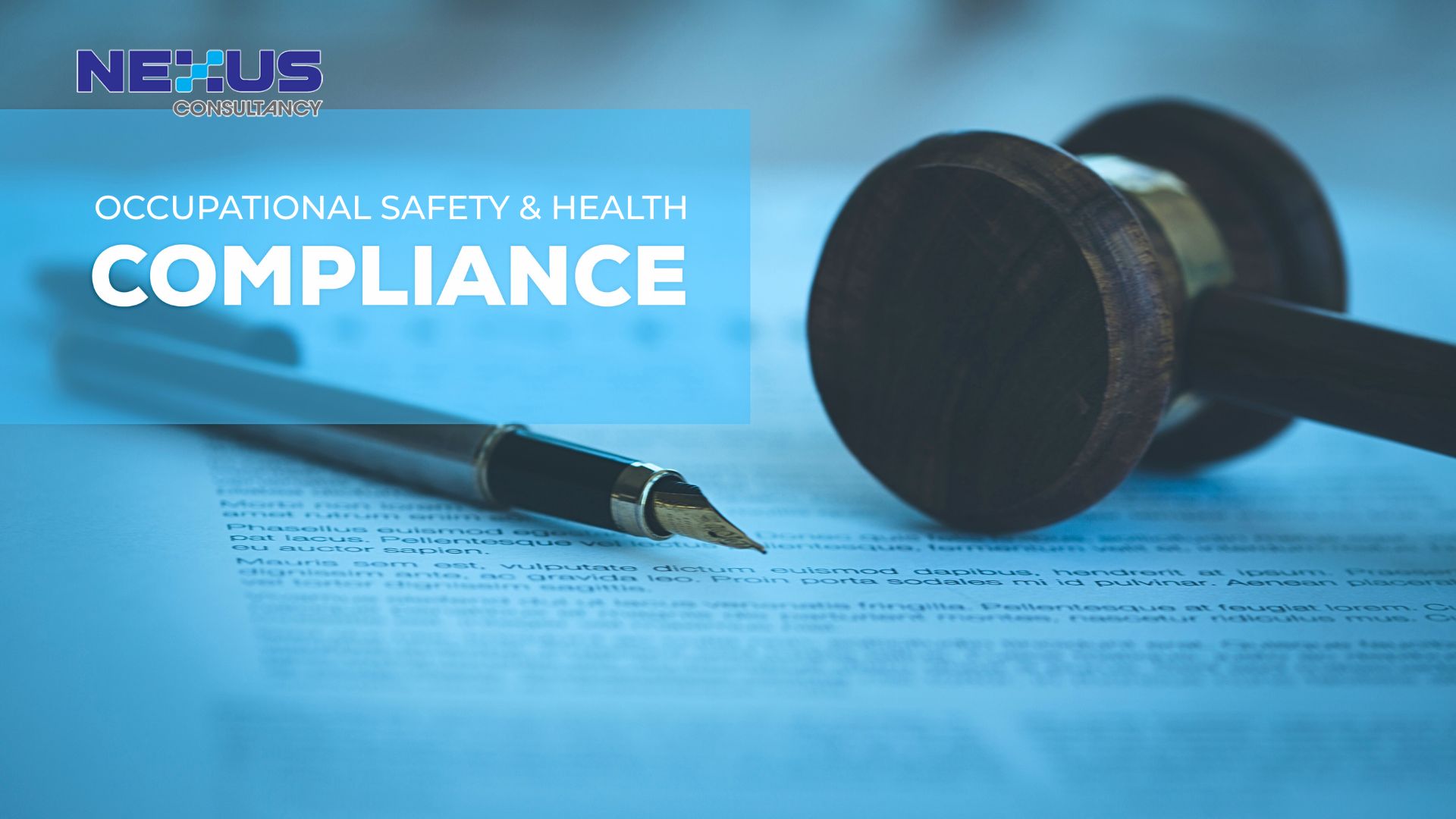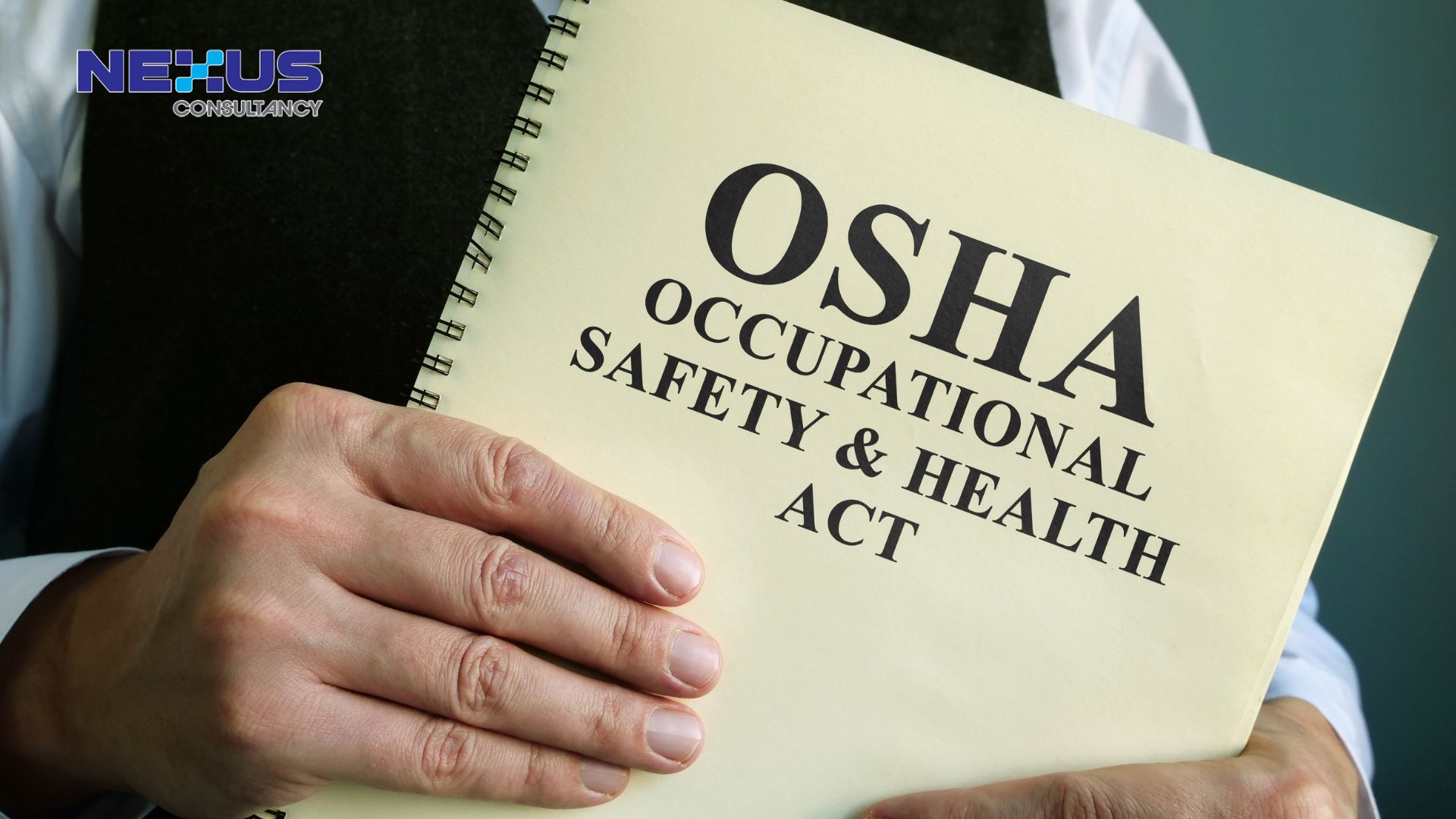
Danielle Tan
Chief Operating Officer
Worried about Malaysia’s OSH Act penalties or workplace audit readiness? Discover how proactive OSH compliance builds trust, reduces fines, and supports ESG goals.

In today’s competitive market, companies are judged not just by their products or services—but also by how responsibly they operate. One critical area that often defines a company’s public image is its commitment to occupational safety and health (OSH). In Malaysia, compliance with the Occupational Safety and Health Act 1994 (OSH Act 1994) is legally mandatory, but going beyond the bare minimum can elevate your business reputation and brand trust.
👉 Explore OSH & ISO 45001 Advisory Services
1. Demonstrates Corporate Responsibility and Leadership
Being proactive about OSH compliance shows that your company is not only aware of its legal obligations but is also committed to the well-being of its employees. This positions your business as a responsible corporate citizen in the eyes of your stakeholders—customers, partners, investors, and regulators.
Why it matters:
– A clean safety record speaks volumes about your leadership values.
– Public perception improves when companies take initiative instead of waiting for enforcement action.
– Responsible practices attract investors, especially those focused on ESG (Environmental, Social, Governance) factors.
2. Boosts Employee Morale and Retention
Employees are your greatest asset. When they see that management takes workplace safety seriously, it enhances job satisfaction, morale, and loyalty. A safe working environment also reduces stress, absenteeism, and turnover rates.
Why it matters:
– Employees are more engaged and productive in a workplace where they feel protected.
– Word of mouth from employees influences how others perceive your company.
– Companies with poor safety records often struggle with high recruitment costs and poor staff retention.
🧠 Safety-first culture increases retention and employer brand value.
3. Reduces Risk of Legal Penalties and Business Disruption
In 2022, the Malaysian government passed the Occupational Safety and Health (Amendment) Act, increasing penalties for non-compliance to RM500,000 and up to 2 years’ imprisonment. Proactive compliance helps you stay ahead of enforcement and avoid legal trouble.
Why it matters:
– Legal penalties not only hurt financially—they also damage your brand.
– A DOSH shutdown or prosecution can generate negative media coverage.
– Prevention costs less than fines, compensation, or lawsuits.
📥 Get a Compliance Readiness Check
4. Improves Client and Supply Chain Confidence
Today’s clients—especially multinational companies—expect their suppliers to comply with OSH, environmental, and labor standards. Many request safety audits or require SMETA, ISO 45001, or ESG reporting as part of their supplier qualification.
Why it matters:
– Proactive compliance builds trust with current and potential clients.
– A strong OSH track record gives you a competitive edge in bids and tenders.
– It opens doors to international markets and partnership opportunities.
5. Enhances Brand Image and Media Coverage
In the digital era, your company’s actions can quickly become public knowledge. Media outlets, NGOs, and even customers can highlight both positive and negative aspects of your operations.
Why it matters:
– Proactive OSH practices create opportunities for positive PR and recognition.
– You build a brand associated with integrity, care, and sustainability.
– On the flip side, one serious safety incident can damage your brand’s image for years.
📍 Case Example: A manufacturing firm in Selangor implemented ISO 45001, launched employee safety programs, and published its OSH performance in its sustainability report. Within a year, they received coverage in local media and secured a regional contract with a global buyer that cited “proactive risk management” as a deciding factor.
6. Supports Long-Term Business Sustainability
Business sustainability isn’t just about profits—it’s about continuity, resilience, and reputation. Companies that build safe work environments are better equipped to manage crises, adapt to change, and grow sustainably.
Why it matters:
– Safety incidents can halt production, delay deliveries, and affect revenue.
– Reputational damage takes years to rebuild.
– Clients and partners are more likely to support resilient, compliant businesses.
7. Aligns with National and Global ESG Expectations
Malaysia’s push for ESG adoption includes more emphasis on labor rights, health, and safety compliance. Proactive OSH practices show that your business is aligned with national goals (Twelfth Malaysia Plan) and global sustainability standards.
Why it matters:
– Helps attract ESG-conscious investors and buyers.
– Adds value to your sustainability reporting and GHG disclosures.
– Prepares your business for future regulatory shifts.

Final Thoughts
Proactive OSH legal compliance is not just a risk-reduction strategy—it’s a reputation-building tool that drives business resilience, customer trust, and employee loyalty. In an era where transparency and accountability matter more than ever, businesses that go beyond compliance are the ones that lead.
In short, safety is good for business—and even better for your brand.
Ready to Lead with OSH Compliance?
Struggling with outdated SOPs or unclear on what the OSH Act 2022 expects of you? Don’t wait for a penalty or audit to act.
Take the first step toward safety, trust, and sustainable business leadership.






